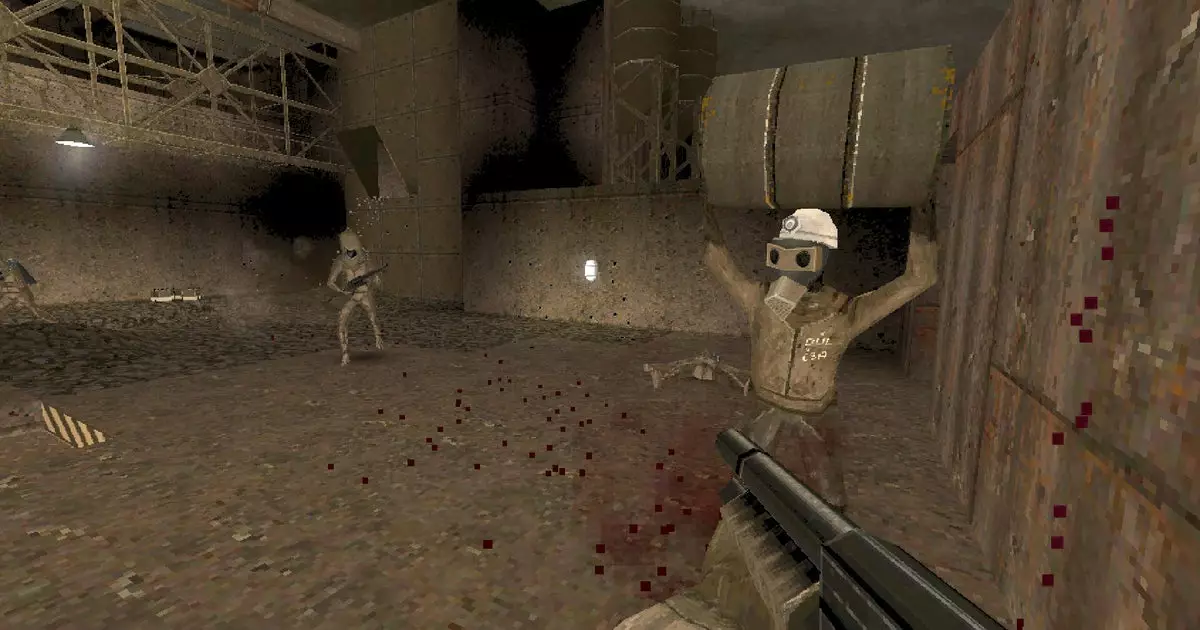The evolution of video games rarely moves in a straight path, with unforeseen glitches and bugs sometimes derailing even the most carefully crafted titles. Case in point: Hrot, a Quake-inspired shooter that has found itself under scrutiny for an unusual reason—persistent and annoying dog barking. After being in early access for over eighteen months, the game’s quirky canine companions were discovered to be more than just background embellishments; they turned into a frustrating looping audio menace for some players.
Game development is an intricate dance between creativity and technical precision. According to developer Spytihněv, player feedback can sometimes be misleading, leading to a disconnect between developers and the gaming community. Initial complaints about the dogs’ barking were shrugged off as mere preferences, until it became evident that a technical oversight had transformed harmless sound effects into a maddening loop for certain configurations, particularly on Linux systems. Such scenarios highlight the importance of comprehensive testing across multiple platforms before a game is deemed ready for release—a lesson that many developers should take to heart.
The ability to listen and respond to community feedback is a cornerstone of successful game development. However, it’s a slippery slope; developers can drown in the noise of discontent if they’re not careful. The barking dogs in Hrot exemplify this drama—what should have been a charming mechanic quickly spiraled into a source of frustration, turning a whimsical part of the game into potential deal-breaker for many. This incident illuminates the broader conversation about how developers can maintain their vision while simultaneously catering to an often-diverse player base.
There’s an irony in the gameplay mechanics where the adorable dog, meant to serve as comic relief, reminded players to keep their weapons at the ready while they engage in unabashed chaos (like shooting a gas-masked horse). It fractures the immersive experience when players can’t escape the cacophony of a glitch, leading to an uninspired experience instead of the whimsical excitement intended by the developers. It raises an essential question: how much control do players have over their environment, even in a fictional one?
Feedback from players like Rick, who contributed to Hrot’s review, focuses on the game’s unique narrative structure—the blend of socialist parody with horror-related undertones—but it’s hard to celebrate an engrossing story when surrounded by incessant barking. The game’s thematic richness contrasts starkly with technical shortcomings, which could lead players to miss out on the intended experience altogether.
The developer’s response was not just reactive, but indicative of a shift in focus towards more imaginative projects. Following the release of Hrot and the correction of its barking issue, Spytihněv moved on from shooters to real-time strategy games, as evidenced by the birth of Shrot—a title boasting its own eccentric blend of retro-style gameplay set on a desert planet. This pivot suggests that the creative processes of developers evolve as they address audience feedback and their aspirations. Hrot, with its bizarre and often absurd elements (like a doppelganger of Putin riding a bear), adds a unique flavor to the shooter genre, which may have been overshadowed by its technical missteps.
Ultimately, the saga of Hrot and its barking dogs serves as a cautionary tale about the interplay of creativity, technical execution, and player experience in game development. While it is essential for developers to convey their artistic vision, it’s equally important to prioritize player experience, taking into account the myriad ways in which players engage with games. For Spytihněv and his team, the journey from Hrot’s barking bug to newfound clarity in Shrot represents the delicate balance of navigating artistic expression while ensuring that the player’s experience remains central to game design.
This story serves as both a critique of the technical limitations faced by many developers and an homage to the inventive spirit that drives the gaming industry forward—a spirit, you could say, that’s like a persistent puppy: sometimes adorable, occasionally exasperating, but always striving for that game of your dreams.

